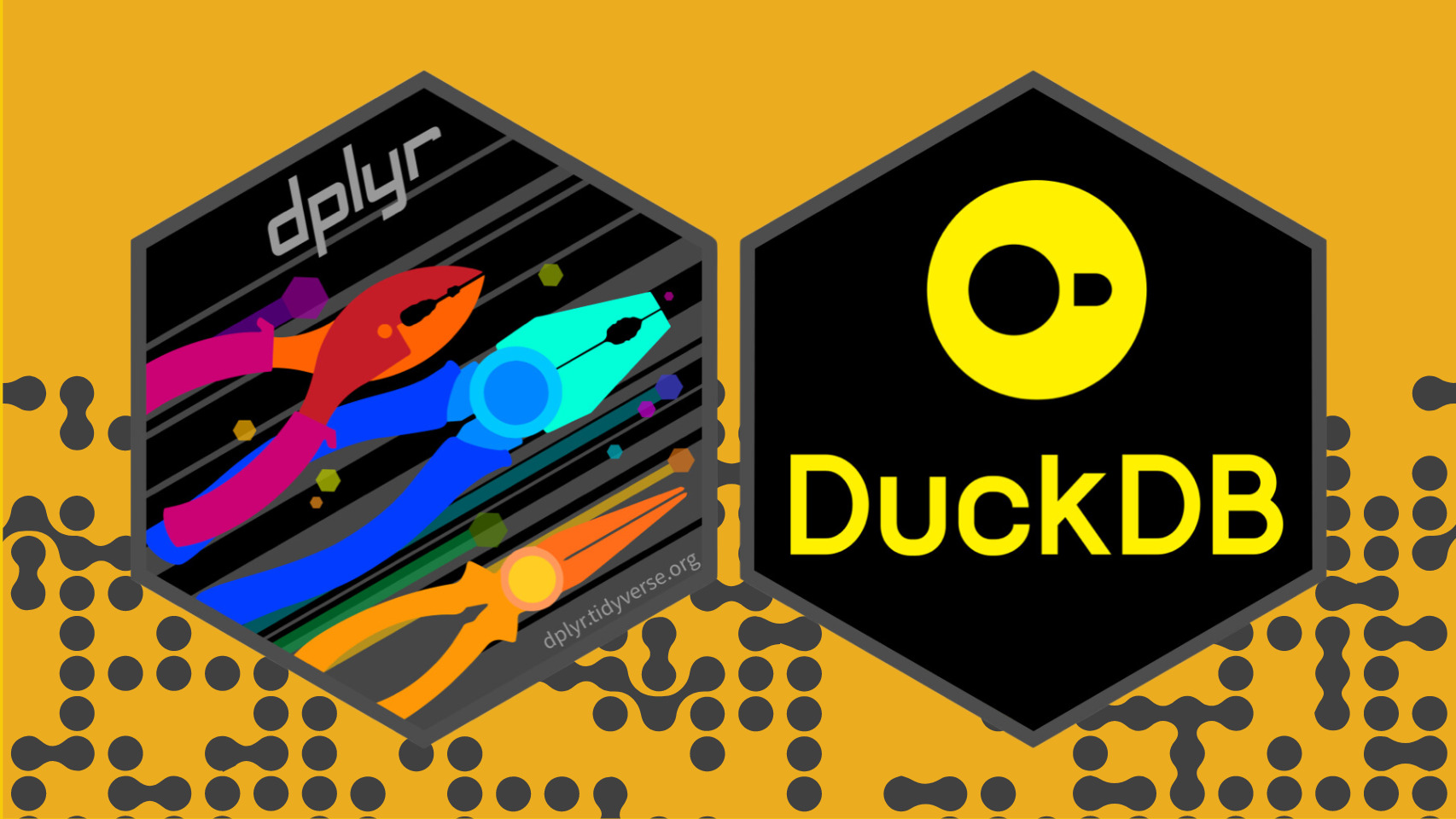duckplyr: dplyr Powered by DuckDB – A High-Level Overview

The newly introduced R package, duckplyr, brings the power of DuckDB‘s execution engine to the dplyr API, offering a seamless and efficient data manipulation experience in R.
Background
Data wrangling, the process of cleaning and transforming raw data into a usable format, is a fundamental step in data analysis. Traditionally, SQL has been the go-to language for manipulating tabular data due to its wide acceptance and powerful features. However, its integration into data analysis environments like R and Python has always been less than ideal, primarily due to its verbosity and the cognitive load of managing complex queries.
Recognizing the limitations of existing tools in handling large datasets efficiently, the data analysis community has been exploring ways to improve or integrate state-of-the-art technology into interactive data analysis environments. This exploration led to the development of duckplyr, a collaboration between the dplyr project team at Posit, cynkra, and DuckDB.
The duckplyr Package
duckplyr is a powerful new option that marries the intuitive and user-friendly dplyr syntax with the high-performance execution capabilities of DuckDB. It is designed as a drop-in replacement for dplyr, ensuring ease of adoption for existing users. The package translates dplyr’s data manipulation verbs into DuckDB’s query processing engine, bypassing the need for SQL and allowing for direct construction of logical query plans. This approach not only simplifies the data manipulation process but also significantly enhances performance by leveraging DuckDB’s advanced query optimization techniques.
Key Features and Innovations
- Ease of Installation: duckplyr is available on CRAN, making it easily accessible to the R community.
- Performance: By utilizing DuckDB’s execution engine, duckplyr offers substantial performance improvements over traditional dplyr operations, especially for large datasets.
- Seamless Integration: duckplyr allows for direct manipulation of data frames within R, eliminating the need for data import/export steps and significantly reducing overhead.
- Advanced Query Optimization: DuckDB’s sophisticated query optimizer ensures efficient execution of complex queries, including those involving large intermediate results or requiring parallelization.
Conclusion
duckplyr represents a significant advancement in the field of data analysis, combining the best of dplyr’s user-friendly data manipulation API with the unparalleled performance of DuckDB. It stands as a testament to the power of collaboration and innovation in addressing the evolving needs of data analysts.
For a more detailed exploration of duckplyr, including its technical underpinnings and performance benchmarks, refer to the original blog post: duckplyr: dplyr powered by DuckDB.